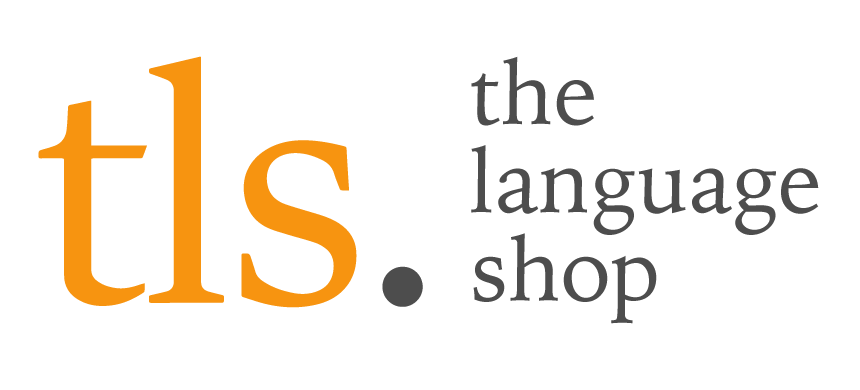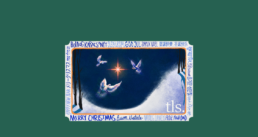Your month ahead - dates for your diary (February)
9-15, Children’s Mental Health Week
Started by children’s mental health charity, Place2Be, this annual week raises awareness of the importance of good mental health in childhood. This year’s theme is ‘This is my place’, with a focus on creating a sense of belonging and recognising the value of having a safe place where you are included and loved. Find out more: About Place2Be's Children's Mental Health Week
18, Ramadan, Islam
The Holy Month for Muslims will begin around 18 February, but the start is subject to sight of the hilal, or new crescent moon. During Ramadan, observant Muslims fast during daylight hours, abstaining from food and drink, including water. The elderly, children and those travelling or menstruating are excused from the fast. As well as fasting, Ramadan is also a time for Muslims to increase their donations to charity, reflect, pray and spend time with family.
February's dates at a glance
Religious/cultural
1 – Triodion begins, Orthodox Christian
1 – Thaipusam, Hindu
2 – Tu Bishvat, Judaism
2 – Imbolc*/Candlemas Wicca and Pagan
3 – Lailat Al Bara’ah, Islam
3 – Setsubun-Sai, Shinto
8 – Sunday of the Prodigal Son, Orthodox Christian
14 – Saint Valentine’s Day, Christian
14 – Saturday of Souls, Orthodox Christian
15 – Meatfare Sunday, Orthodox Christian
15 – Nirvana Day, Buddhist
15-16 – Maha Shivratri, Hindu
16 – Shrove Monday, Christian
17 – Shrove Tuesday, Christian
17 – Lunar New Year, Confucian, Daoist and Buddhist
18 – Ash Wednesday, Christian
18 – Losar begins, Buddhist
18 – Ramadan begins, Islam
21 – Saturday of Souls, Orthodox Christian
22 – Feast of the Chair of Saint Peter, Catholic Christian
22 – Cheesefare Sunday, Orthodox Christian
23 – Great Lent begins, Orthodox Christian
23 – Phalguna Ashtahnika begins, Jain
25 – Rohini Vrat, Jain
25 Feb-1 March – Intercalary Days, Baha’i
28 – Saturday of Souls, Orthodox Christian
31 – Guru Harrai Jayanti, Sikh
Awareness and Events
1 – World Hijab Day
1-7 – World Interfaith Harmony Week
4 – World Cancer Day
5 – Time To Talk Day
5-11 – UK Race Equality Week
6 – International Day of Zero Tolerance to Female Genital Mutilation
9-15 – Children’s Mental Health Week
10 – Safer Internet Day
11 – International Day of Women and Girls in Science
12 – Red Hand Day for Child Soldiers
15 – International Childhood Cancer Day
17 – World Human Spirit Day
20 – World Day of Social Justice
21 – International Mother Language Day
language fact file: Kurmanji
Kurmanji is spoken as a native language in: Turkey, Syria and northern Iraq
Number of users: 17 million
Learn some: Greet people with ‘silav!’ or ‘merheba!’, and say goodbye with ‘bi xatire te’ (bi khatiray te).
Fast facts:
Kurmanji dialect is spoken by at least 60% of ethnic Kurds, the second most widely spoken Kurdish dialect being Sorani. Despite the fact that they are both Kurdish dialects, the two are mutually unintelligible, meaning that if you are booking an interpreter for a Kurdish service user, it’s very important to find out their native tongue!
Many Kurds were not educated in their mother tongue, so if you’re using the written word you may wish to ask if your service user would prefer to use a different language. These are commonly Arabic, Farsi and Turkish.
Speaking Kurmanji in public was banned in Turkey until 1991, which helped the language to become a symbol of cultural resistance. It is also the language of much Kurdish folklore, songs and literature, reinforcing its importance for native speakers.
The Linguist's Story - January
Every month, we get to know a bit more about one of our linguists. This month, we introduce you to Shaimaa Abdulkarim, an interpreter working in Kurdish dialects Bahdani and Kurmanji.
Tell us about your work for TLS.
I work as a remote Kurdish interpreter in Bahdini and Kurmanji. Since then, I have worked across a range of settings, including the NHS, social services, and other public and voluntary sector organisations.
What has been your favourite project at TLS?
I have enjoyed working with TLS, and my experience across the projects I have undertaken so far has been very positive. I have interpreted in numerous mental health sessions with different organisations, and I value all of them. One session I particularly valued involved supporting a psychology appointment, where I observed a high level of professionalism and expertise from the specialist, making it a very positive and memorable experience.
What has been your biggest challenge?
One of my main challenges is that some organisations request a Kurdish interpreter without specifying the required dialect. Kurdish consists of several main dialects, including Bahdini, Kurmanji, and Sorani, and it is important to identify the correct one for each booking. If there is any uncertainty about which dialect is required, the TLS team can support organisations in establishing the appropriate dialect for the individual booking.
Can you tell us about a time your work has made a difference to someone’s life?
On several occasions, I have interpreted for unaccompanied minors and looked-after children seeking asylum in the UK. Being their voice during discussions about their difficult journey, helping them know what their rights are, and reassuring them that they are in a safe country is always a privilege, and I believe it makes a meaningful difference to the young people’s lives.
Tell us something interesting about you.
An interesting fact about me is that I am a fluent Arabic speaker and genuinely enjoy learning new things, which is one of the reasons I work as an interpreter. This role allows me to learn something new every day through the people and situations I work with.
Your month ahead - Important upcoming dates for your calendar (January 2025)
4, World Braille Day
World Braille Day is a worldwide celebration that takes place every year on 4 January, celebrating the legacy of Braille, the system of raised dots used by many blind and partially sighted people to read and write. Braille was developed 200 years ago, having been invented by Louis Braille who was just 15 years old at the time.
13, Lohri/Maghi, Hinduism and Sikhism
Lohri or Maghi is a celebration from Punjab, traditionally a harvest festival marking the end of winter in the region. It is celebrated with the lighting of bonfires, which people often sing around and throw popcorn or chickpeas into the flames as offerings. Over the years, it has also become a way to welcome a new baby into families. The name ‘Lohri’ comes from the treats or snacks given to children who go from door to door, singing.
January's dates at a glance
Religious/cultural
1 – Solemnity of Mary, Mother of God, Catholic Christian
1 – Rohini Vrat, Jain
1 – Gantan-Sai (New Year), Shinto
1-7 – Hatsumode, Shinto
3-5 – Mahayana New Year, Buddhist
5 – Twelfth Night, Christian
6 – Epiphany, Christian
7 – Feast of the Nativity, Orthodox Christian
11 – Baptism of the Lord Jesus, Catholic Christian
12 – Swami Vivekananda Jayanti, Hindu
12 – Seijin No Hi, Shinto
13 – Lohri/Maghi, Hindu and Sikh
14 – Old New Year, Orthodox Christian
14 – Makar Sankranti, Hindu
14-17 – Pongal, Hindu
16 – Lailat Al-Miraj, Islam
16 – Meru Trayodashi, Jain
18-25 – Week of Prayer for Christian Unity, Christian
19 – Timkat, Ethiopian Orthodox Christian
19 – Feast of the Theophany, Orthodox Christian
23 – Vasant Panchami, Hindu, Sikh and Jain
25 – Conversion of Saint Paul, Christian
25 – Zacchaeus Sunday, Orthodox Christian
28 – Rohini Vrat, Jain
31 – Guru Harrai Jayanti, Sikh
Awareness and Events
4 – World Braille Day
18 – World Religion Day
19 – Martin Luther King Jr Day
24 – International Day of Education
25 – Robert Burns Night (Burns Night)
27 – Holocaust Memorial Day
language fact file: British Sign Language
British Sign Language is used as an official language in: the UK
Number of users: 150,000
Learn some: The quickest way to learn to communicate with BSL users is to finger spell – use the chart below from the British Deaf Association to master it!
https://rnid.org.uk/wp-content/uploads/2021/03/RNID_BSL_Finger_Spelling_Alphabet_Info.pdf
British Sign Language Fast facts:
You probably already know that there are national varieties of sign language, but did you know that BSL has regional accents? Just like spoken English, people using BSL from different parts of the country ‘sound’ different from each other.
Not all deaf people in the UK use BSL. It’s important not to assume that because someone is deaf, they will want sign language support.
BSL can be traced back to 1576! We know relatively little about BSL’s history but there is a record from this year showing that it was used at a wedding. The first school teaching BSL was founded in 1760, but discrimination against deaf people sadly persevered, and deaf children were punished in schools well into the 20th century for using sign language.
The Linguist’s Story - December 2025
Every month, we get to know a bit more about one of our linguists. This month, we introduce you to Nekeshia Foster, an interpreter working in British Sign Language (BSL).
Tell us about the work you do for TLS
I work with TLS services to provide BSL-English/English-BSL interpretation in a range of settings including appointments, meetings and events. I ensure that information is accessible to the Deaf and hearing community and help to create an inclusive environment. I truly enjoy working for TLS, being part of a team that prioritises inclusion and accessibility and I hope to continue making a meaningful impact across the organisation.
What's been your favourite project at TLS?
My favourite project was interpreting a birth - a particularly special one, as the Deaf mum was someone I had supported years earlier when she was at college. Being invited back into her life at such a significant moment was an incredible privilege and it felt like everything had come full circle.
What has been your biggest challenge?
My biggest challenge has been interpreting emotionally charged interactions whilst remaining calm, professional and completely focused on facilitating communication. These moments can be intense, however staying grounded ensures that clients still receive access to information when they need it most.
Can you tell us about a time your work has made a difference to someone's life?
I once interpreted a practical driving test for a Deaf client - and he passed! Seeing his reaction at the end was hugely rewarding. It was clear how much independence and confidence this achievement would give him and I felt genuinely happy to have played a small part in that milestone.
Tell us something interesting about you
When I'm not interpreting, I'm very much into interior design. Creating beautiful, functional spaces keeps me energised and brings a bit of balance to my busy weeks.
TLS selected as supplier to national NHS framework
We are delighted to announce our re-appointment as a supplier to the NHS Shared Business Services (NHS SBS) Interpreting and Translation Framework. The framework provides the NHS and wider public sector with access to our comprehensive range of interpreting and translation services, including face-to-face spoken language, British Sign Language (BSL), telephone and video interpreting. Its modular design allows customers to access services either via direct award or further competition, tailored to their specific needs, while also offering the flexibility to consolidate services under a single provider.
If you would like to discuss how our appointment on the framework could benefit your organisation, please get in touch.
End of year message from our Managing Director - December 2025
It’s hard to believe how quickly this time of year has come around. The end of the year offers a valuable opportunity to pause and reflect on the past 12 months. Amid the growth, challenges, and successes we’ve experienced—and the significant changes underway at TLS—it’s easy to get swept up in the momentum and forget the importance of taking stock.
2025 has been a challenging year globally and nationally, marked by economic uncertainty, inflationary pressures, and tighter budgets impacting public sector and healthcare provision. Geopolitical instability and migration crises have driven unpredictable demand for language services, while NHS and local authority funding constraints have increased pressure to deliver greater value for money.
Despite these challenges, I feel deeply fortunate for the support of our loyal customers, strong partnerships, and the dedication of our employees and freelancers. We remain committed to delivering excellence, continuing to facilitate specialist training for our linguists—such as this summer’s child protection programme—and forging partnerships that make a difference. This year, we proudly launched a collaboration with the migrant mental health charity The Magic Stork to ensure more vulnerable individuals can access the support they need.
We are delighted that a number of our longstanding customer relationships have been renewed or extended during the year, alongside successful appointments to several nationally significant procurement frameworks, including Crown Commercial Services—making it easier than ever for buyers to access our services. We were also proud to be re-awarded Customer Service Excellence certification, reaffirming our commitment to quality and continuous improvement. In parallel, we strengthened our organisational resilience and data security, achieving Cyber Essentials Plus in March—a government-backed accreditation that ensures your data is protected by robust, independently verified security measures.
Please note that our bookings line will remain open throughout Christmas and New Year. Thank you for your continued support.
On behalf of everyone at TLS, I wish you a very Merry Christmas, Happy Hanukkah, Happy Holidays, and a wonderful New Year.
See you in 2026!
Jaimin Patel, Managing Director
Dates for your diary - December
15-22, Hanukkah, Judaism
Hanukkah is the Jewish festival of light. It commemorates a famous battle, led by a tribe called the Maccabees, where Jewish people triumphed over their oppressors and returned to their temple, only to find it ransacked. They repaired the temple and wanted to light the oil lamp to rededicate it to God, but found there was very little oil left. However, what was left burned miraculously for eight days. This is why during Hanukkah, many Jews light an extra candle on their menorah each night, as the week progresses.
Hanukkah is also celebrated by giving gifts, eating fried food such as latkes and playing games.
18 – International Migrants’ Day
This year marks the 25th anniversary of this annual event, implemented by the UN to honour the contribution made by the millions of migrants around the world, as well as highlight the problems worldwide forcing people to leave their homes: climate change related events, war, famine, economic pressures among others. It aims to remind us of the value of migrants to our communities and countries.
December's dates at a glance
Religious/cultural
1 – Gita Jayanti, Hindu
6 – Feast of Saint Nicholas, Christian
8 – Feast of the Immaculate Conception, Catholic Christian
8 – Rohatsu (Bodhi Day), Buddhist
12 – Feast of Our Lady of Guadalupe, Catholic Christian
15 – Dhanu Sankranti, Hindu
15-22 – Hanukkah, Judaism
16 – Las Posadas starts, Catholic Christian
21 – Yule, Wicca and Pagan
24 – Christmas Eve, Christian
25 – Christmas Day, Christian
25 – Feast of the Nativity of Our Lord, Orthodox Christian
26 – Feast of Saint Stephen, Christian
26 – Zartosht No-Diso, Zoroastrian
27 – Guru Gobind Singh Jayanti, Sikh
28 – Holy Innocents’ Day, Christian
28 – Feast of the Holy Family, Catholic Christian
31 – Watch Night, Christian
Awareness and Events
1 – World Aids Day
2 – International Day for the Abolition of Slavery
3 – International Day of Persons With Disabilities
10 – Human Rights Day
18 – International Migrants’ Day
20 – International Human Solidarity Day
21 – Winter Solstice
26 – Boxing Day
26 Dec - 1 Jan – Kwanzaa
31 – New Year’s Eve/Hogmanay
language fact file: Japanese
Language fact file: Japanese
Japanese is spoken as an official language in: Japan
Number of native speakers: 123 million
Learn some: Manners are important in Japanese culture, so learn the basics: ‘arigatou gozaimasu’ is ‘thank you’, and there are two ways to say please, depending on whether you are requesting an object: ‘kudasai’, or a service: ‘onegaishimasu’.
Fast facts:
While now only an official language in Japan, Japanese was once the official language of the Republic of Palau. This is a nation made up of hundreds of islands, situated in the Pacific Ocean. It was ruled by Japan between WW1 and WW2, after which time it was governed by the USA. It finally gained full sovereignty in 1994.
While Japanese uses some Chinese characters and loan words from other languages, it is what linguists call a ‘language isolate’, meaning it shares no roots with any other language.
A Japanese character can have up to ten different readings! Add to this the fact that there is no definite (the) or indefinite (a) article and no way of making a plural, you can see why it might be a challenging language to learn!









